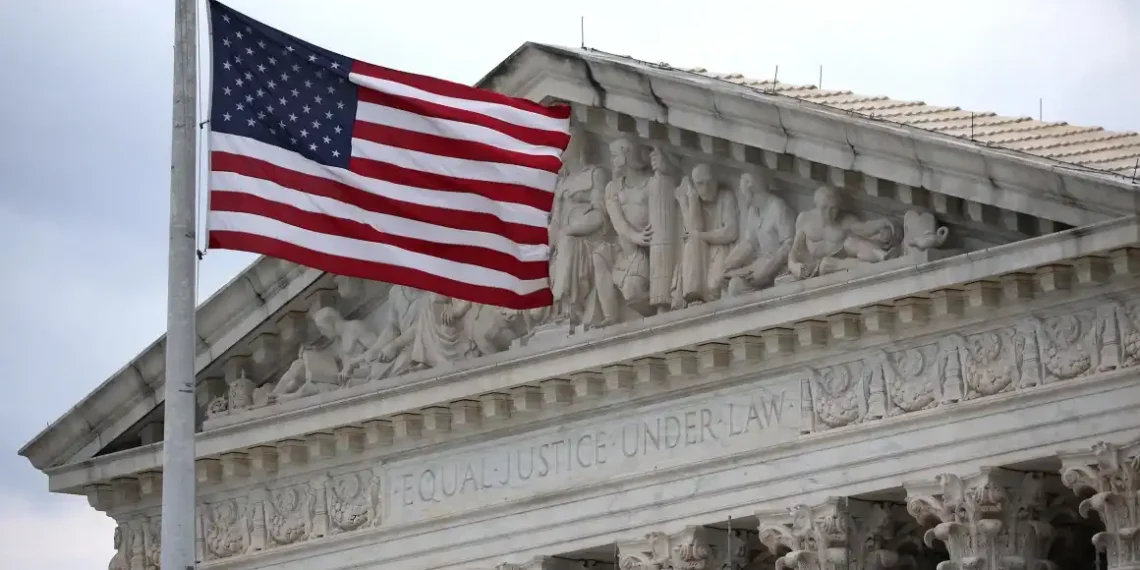Supreme Court Backs Trump in Suspending Deportation Protections for 500,000 Migrants
In a major immigration ruling, the Supreme Court on Friday allowed former President Donald Trump’s administration to suspend a humanitarian parole program that had granted temporary legal protections to over half a million migrants from Cuba, Haiti, Nicaragua, and Venezuela.
This emergency decision marks the second time this month the high court has sided with Trump’s efforts to roll back protections for immigrants—an ironic twist given his ongoing criticism of the federal judiciary.
What the Ruling Means
With this ruling, the Trump administration can now move forward with plans to deport more than 530,000 migrants who had been allowed to live and work in the U.S. under the Biden-era policy. While the legal battle is far from over—the case continues in lower courts—this decision removes a major roadblock for the administration.
Immigration advocates warn the impact will be immediate and severe.
“I cannot overstate how devastating this is,” said Karen Tumlin, director of the Justice Action Center, which represents many of the affected migrants. “This ruling unleashes chaos not just for our clients, but for their families, workplaces, and communities.”
A Split Court—and a Sharp Dissent
The Supreme Court’s unsigned order did not include an explanation, which is typical of its emergency docket rulings. However, Justices Sonia Sotomayor and Ketanji Brown Jackson strongly dissented.
In a blistering opinion, Jackson accused the majority of ignoring the human toll of the decision.
“The court undervalues the devastating consequences of allowing the government to precipitously upend the lives and livelihoods of nearly half a million noncitizens,” she wrote. “Apparently, it is now in the public’s interest to have the lives of these migrants unravel before their legal claims are even heard.”
What Was the Parole Program?
Parole has long been a tool in U.S. immigration policy, dating back to the Eisenhower administration. It allows the government to temporarily admit migrants for humanitarian reasons. Under Biden, the program was expanded in 2023 to cover migrants from Cuba, Haiti, Nicaragua, and Venezuela—provided they had U.S. sponsors, passed security checks, and entered the country legally.
The goal was to provide a safer, orderly alternative to unauthorized border crossings. But Trump moved swiftly to dismantle it on his first day back in office.
What’s at Stake Legally?
The legal dispute hinges on how much discretion the Department of Homeland Security has in ending parole protections. While federal law gives the DHS secretary broad power over parole decisions, immigrant advocates argue the government must evaluate each case individually—not cancel protections en masse.
A federal judge in Massachusetts agreed, temporarily blocking the Trump administration from ending the program without individualized reviews. That ruling was upheld by a federal appeals court in Boston earlier this month.
However, the Supreme Court’s new order overrides those decisions—at least for now.
Political and Legal Fallout
For the Trump administration, the court’s decision is a significant win.
“The migrants can now be deported because the Supreme Court justly stepped in and stopped these crazy lower court injunctions,” said Stephen Miller, Trump’s immigration architect and White House deputy chief of staff.
Legal experts warn the decision could increase pressure on the justices as they consider other high-stakes immigration cases, including one that asks whether the government can deport migrants to third countries without giving them a meaningful chance to challenge that removal.
“This decision raises the stakes,” said CNN legal analyst Steve Vladeck. “It underscores how much influence the Supreme Court has over the direction of immigration policy—even before the full legal issues are resolved.”
The Bigger Picture
The parole case is one of more than a dozen immigration-related emergency appeals that have reached the Supreme Court during Trump’s term. The justices are also weighing other hot-button issues, such as birthright citizenship and the scope of executive power in shaping immigration policy.
The implications of Friday’s ruling go far beyond the courtroom. For hundreds of thousands of families now facing the threat of deportation, the future has become even more uncertain.
This article was rewritten by JournosNews.com based on verified reporting from trusted sources. The content has been independently reviewed, fact-checked, and edited for accuracy, neutrality, tone, and global readability in accordance with Google News and AdSense standards.
All opinions, quotes, or statements from contributors, experts, or sourced organizations do not necessarily reflect the views of JournosNews.com. JournosNews.com maintains full editorial independence from any external funders, sponsors, or organizations.
Stay informed with JournosNews.com — your trusted source for verified global reporting and in-depth analysis. Follow us on Google News, BlueSky, and X for real-time updates.














